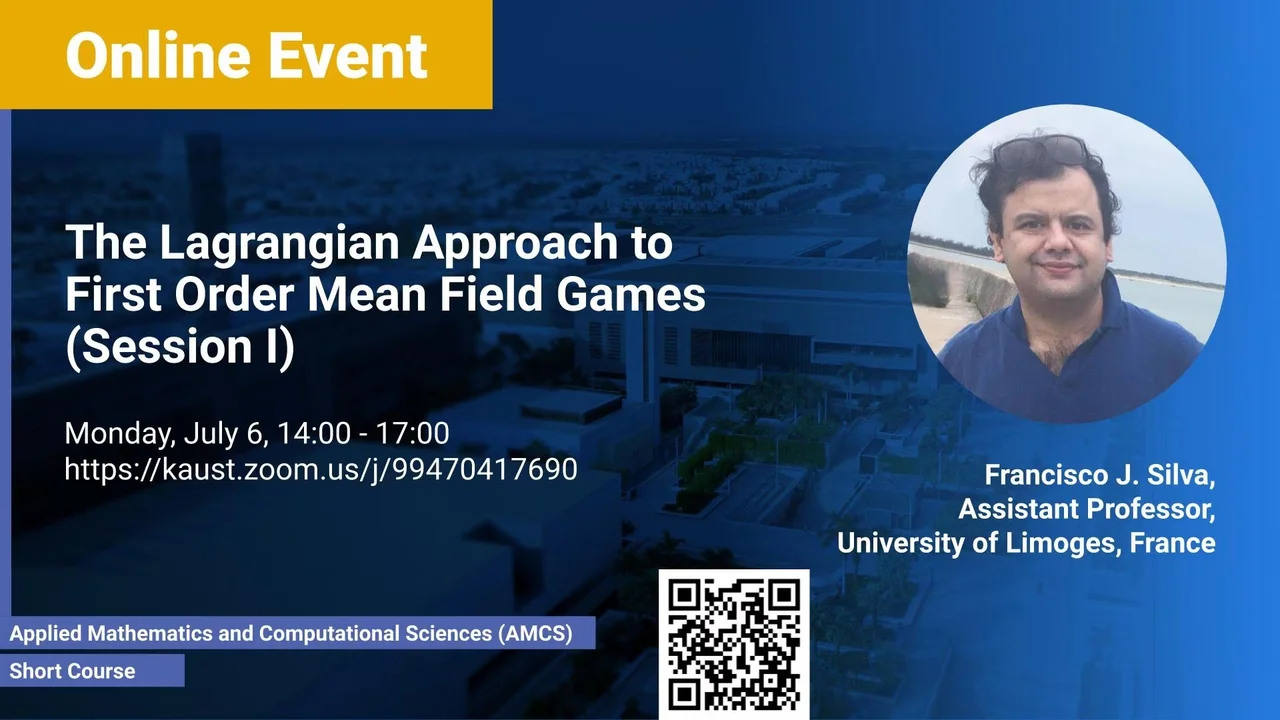
The Lagrangian Approach to First Order Mean Field Games (Session I)
- Prof. Francisco J. Silva, Applied Mathematics, University of Limoges, France
KAUST
In this course, we will consider the so-called Lagrangian approach to mean-field games. We will introduce the problem by recalling some basic results for nonatomic games in a static framework. Next, based on recent results in collaboration with Markus Fischer (University of Padua), I will introduce the analogous setting in the deterministic and dynamic framework. In the second part of the course, I will present the details of a convergence result, obtained in collaboration with Saeed Hadikhanloo, of equilibria of a suitable sequence of discrete-time and finite mean-field games, as introduced by Gomes, Mohr, and Souza in 2010, to an equilibrium of the first-order mean-field game system. The convergence proof relies importantly on the Lagrangian formulation of equilibria.
Overview
Abstract
In this course, we will consider the so-called Lagrangian approach to mean-field games. We will introduce the problem by recalling some basic results for nonatomic games in a static framework. Next, based on recent results in collaboration with Markus Fischer (University of Padua), I will introduce the analogous setting in the deterministic and dynamic framework. In the second part of the course, I will present the details of a convergence result, obtained in collaboration with Saeed Hadikhanloo, of equilibria of a suitable sequence of discrete-time and finite mean-field games, as introduced by Gomes, Mohr, and Souza in 2010, to an equilibrium of the first-order mean-field game system. The convergence proof relies importantly on the Lagrangian formulation of equilibria.
Brief Biography
Francisco J. Silva received his Ph.D. from École Polytechnique in 2010 and then completed one year and a half of postdoc at the University Roma La Sapienza. He joined the University of Limoges in 2012 as an assistant professor. His main research interest is optimal control theory from both, theoretical and numerical, points of view. Currently, an important part of his research is focused on the numerical approximation of mean-field games equilibria.
